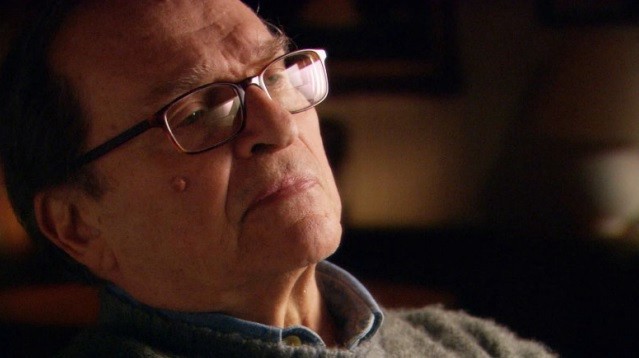Nancy Buirski’s 2013 documentary “Afternoon of a Faun” had its World Premiere at the 51st New York Film Festival and International Premiere at the 64th Berlinale. She is the director, producer, and writer of the Peabody- and Emmy Award-winning “The Loving Story.” Buirski founded and was the Director of the Full Frame Documentary Film Festival for 10 years. Prior to her work in film, Buirski was the Foreign Picture Editor at The New York Times, garnering the paper its first Pulitzer Prize in photography.
“By Sidney Lumet” made its World Premiere at Cannes Film Festival in 2015. The doc hits theaters October 28 in NY and November 4 in LA.
W&H: Give us your description of the film playing.
NB: “By Sidney Lumet” is a documentary film portrait of the work and life of one of the most accomplished and influential directors in the history of cinema. His strongly moral tales captured the dilemmas and concerns of a society struggling with essentials — how does one behave to others and to oneself? Though spiritual and ethical lessons are at the core of his work, they are not didactic.
His films are both powerfully dramatic and wildly entertaining, for Mr. Lumet was first and foremost a storyteller. In a rare, never-before-seen interview, we are privileged to have Sidney Lumet tell his own story just a few years before his death. With candor, humor and grace, he reveals what matters to him as an artist and as a human being.
W&H: What drew you to this story?
NB: I love trying to grasp and, if lucky, depict the creative process. If I’m truly fortunate, I hope to penetrate deeply and get a sense of one’s soul. Sidney Lumet is an iconic filmmaker and gave many interviews over his lifetime, but the interview, shot by Daniel Anker in 2008, was deep and broad and offered me an opportunity to distill from it what appeared to matter most to Mr. Lumet. Director D.A. Pennebaker said it best: “Every artist wants to have a chance to talk about what matters.”
W&H: What was the biggest challenge in making the film?
NB: The interview I referred to was made over a three-to-five day period — 18 hours! It did not lend itself to a linear approach, nor a biographical one. It was as if he were having a conversation with his viewers. But I still needed a storyline. Finding that within his musings, anecdotes, and memories was a challenge.
Likewise, I had no desire to use his films to simply illustrate what he was saying — this was not show and tell. I wanted to use them in a deeper, more organic way as part of his reflections and his worldview. It was a challenge I adored!
W&H: What do you want people to think about when they are leaving the theater?
NB: More than anything, I want them to have a deep appreciation for this artist and artists in general — the subtle, organic ways a person’s life informs their work.
I want them to respect Mr. Lumet’s discipline, his work ethic, and his excitement about his craft. I’d be especially gratified if they grasp how deeply embedded his morality was, so that it informed almost every film he made. He was honest and generous in both his work and, indeed, in this interview, and we are the beneficiaries.
W&H: What advice do you have for other female directors?
NB: Make movies that mean something to you. Make them personal and let that passion drive you and the work. If so, you’ll not be tempted to give up when the doors appear to shut.
W&H: What’s the biggest misconception about you and your work?
NB: I’ve been fortunate to have directed and produced three documentaries in six seemingly short years that have resonated with audiences. They were fundamentally good subjects, great stories to tell, but they were also labor-intensive and could not have been made without the collaboration of great partners, producers, and editors.
None of this is easy — we all know this and respect the dedication of the teams that are needed to make meaningful work. Directors get most of the credit, and though I’m proud of the creative choices that drive my films, this is never accomplished alone.
W&H: How did you get your film funded? Share some insights into how you got the film made.
NB: I was invited by Michael Kantor from PBS’ “American Masters” to pursue this project. They had funded the original interview with Mr. Lumet in 2008. Unfortunately, due to many circumstances and the untimely death of Daniel Anker last year, the film had not been made. I was thrilled to jump on board in a co-production. Initial development came through foundations and individuals and has been enhanced by the significant support of RatPac Documentary Films and Matador.
W&H: Name your favorite woman-directed film and why.
NB: Too many to name!







